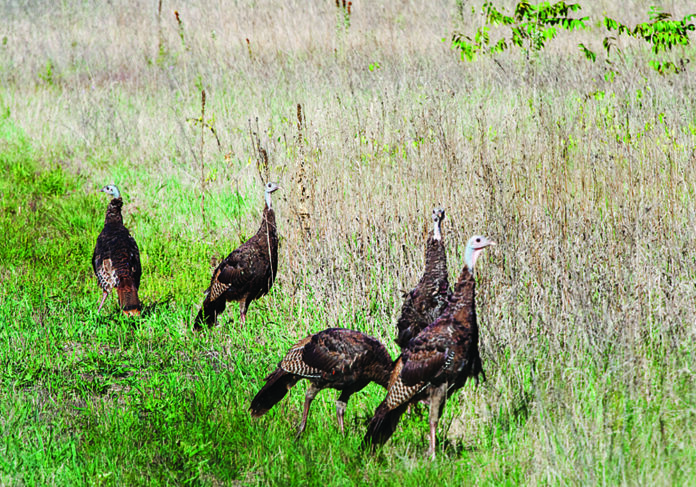UNIVERSITY PARK, Pa. — A Penn State wildlife scientist, working in conjunction with the Pennsylvania Game Commission, is asking hunters to adjust to changes in the length of wild turkey seasons in several wildlife management units this fall, in exchange for enhanced management of the species going forward.
Duane Diefenbach, adjunct associate professor of wildlife ecology in the College of Agricultural Sciences and leader of the Pennsylvania Cooperative Fish and Wildlife Research Unit, urged sportsmen to be patient because the changes are part of ongoing turkey-harvest research.
Goal
Informally dubbed “the hen study,” the project should result in better management of the big birds.
“The goal of the research is to generate information that will allow the Game Commission to more effectively set fall wild turkey season lengths,” he said.
“The change will be for the fall 2013 and 2014 seasons.”
Proposed changes to hunting and trapping seasons and bag limits for the 2013-2014 license year are open to public comment until the next board of game commissioners’ meeting, April 14-15.
Changes proposed
As part of the current wild turkey study, which is a collaborative project conducted by Penn State, the Game Commission, the U.S. Geological Survey and the National Wild Turkey Federation, the following changes are proposed for eight wildlife management units for the next two years:
– The fall wild turkey season in units 2F, 2G and 2H will decrease from three weeks to two weeks
– The fall wild turkey season in units 2C, 2E, 4A, 4B and 4D will increase from two weeks to three weeks.
The three-day Thanksgiving holiday season will remain unchanged in all units.
Objective
The study’s objective is to determine how fall season length affects wild turkey harvest rates, Diefenbach explained, so the game commission can provide the longest fall seasons for hunters without over-harvesting hens.
“Fall season lengths are the primary means of wild turkey population management by wildlife management unit,” he said.
“Season lengths are set to meet a conservative level of harvest because — when combined with natural annual population fluctuations — small changes in hen harvests can adversely affect population growth.”
The results of previous research suggest harvests exceeding 10 percent of the population will lead to declines, noted Mary Jo Casalena, wild turkey biologist with the game commission and Diefenbach’s co-investigator.
Purpose
The purpose of this study is to determine the actual levels of fall hen harvest and survival, and to determine whether an increased season length will result in harvest levels that lead to a decline in the turkey population.
The study incorporates a “crossover design” composed of two study areas, according to Diefenbach.
“Study Area 1 — management units 2C, 2E, 4A, 4B and 4D — has shown sensitivity to three-week seasons, whereas Study Area 2 — management areas 2F, 2G and 2H — has traditionally had three-week fall seasons but lower wild turkey densities than the state average,” he said.
“Now that two years of data have been collected in both study areas with the traditional season lengths, the study design necessitates switching the season lengths between study areas.”
By switching season lengths between study areas, researchers can attempt to answer the question of whether the harvest gained by adding an extra week to a two-week season exceeds a sustainable level of harvest.
The information gathered will lead to more effective scientific management of wild turkeys in Pennsylvania.
Comments
To submit comments to the Pennsylvania Game Commission about changes in fall turkey seasons and the wild-turkey research described here, send an email to pgccomments@pa.gov or go to www.portal.state.pa.us/portal/server.










